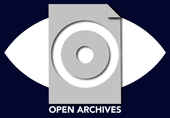Secondary education laws during the Franco regime (1938-1953)
DOI:
https://doi.org/10.15332/erdi.v4i2.839Keywords:
Franco’s regime, education, law of education, differentiated education, secondary educationAbstract
This article is the product of a research about legislation in secondary school during Franco’s times, in order to provide valuable information about the genesis and development of a new secondary school system which was growing with the enactment of laws 1938 and 1953 and the role of women within this educational level. This research focuses on two main axes: one of historical and other education, assessing the in‑uence of dictatorial politics and gender segregation that sets a new educational system in Spain. The method used in this research has been the historical comparative analysis and supplemented by some quantitative analysis. To obtain a historical interpretation from a disciplinary perspective, other disciplinary sciences to history of education, such as sociology and statistical sciences have been used. The findings show the political-patriotic and religious character that the public school system takes, along with the disappearance of the model of coeducation. The appearance of modernity that they tried to give to the 1953 Act did not prevent the Falange and the Church from maintaining a determining role at this educational level. Eorts of having women in a second place in society were postponed due to economic development, from the Fifties, which boosted an unusually high number of female teachers and students in the institutes that came to be named as “Enseñanza Media”.
Downloads
References
Araque, N. (2011). Análisis del sistema educativo español desde su vertiente social y de género (1939-1951) Nuevos horizontes del pasado: culturas políticas, identidades y formas de representación. Coord., Barrios, A., Hoyos, J. de y Saavedra, Santander: Congreso de la Asociación de Historia Contemporánea, pp. 1-18.
Herrera, E. (1941). Historia de la educación española. Madrid: Véritas.
Mayordomo, A. (1990). Estudio preliminar, en MEC. Historia de la Educación en España. V.I. Nacional-Catolicismo y Educación en la España de la postguerra. Madrid: MEC, pp.26-30.
Pérez, M. (1975). El Bachillerato en España (1936-1970). en Varios. La Enseñanza en España. Madrid: Alberto Corazón.
Puelles Benitez, M. (1980). Educación e ideología en la España contemporánea (1967-1975). Barcelona: Labor.
Puelles Benítez, M. (1999). Educación e ideología en la España contemporánea, Madrid: Tecnos.
Ruiz J. (1953). Entre el dolor y la esperanza. Revista de Educación. Año II. Vol. III, nº 6 (enero, 1953), pp. 1-6.
Utande, M. (1982). Un siglo y medio de segunda enseñanza (1820-1970) En: Revista de Educación, 271, pp. 7-41.
Downloads
Published
How to Cite
Issue
Section
License
Publishing and copyright
The authors of the articles accepted to be published, transfer proprietary rights to Espiral, Journal of Teaching and Research for the partial reproduction of the published work in electronic media (websites, indexes, directories), as long as their purposes are academic but not commercial.








